
DIY/DEI: Linguistic Diversity

Advocates and allies are essential promoters of a culture of diversity, equity, and inclusion (DEI) in higher education and beyond. For many, there is a new awareness of issues associated with DEI and a growing desire to learn and engage. To support your efforts, the NC State University Libraries and the Office for Institutional Equity and Diversity have created a curated list of resources to inform your inquiry, introspection, and engagement with this topic. Engaging with these resources will provide you with an opportunity to explore DEI and develop your narrative and understanding.
This month's featured topic: Linguistic Diversity
This list includes resources relating to linguistic diversity. It considers the impact of English as the lingua franca (or “common language”) in various fields and the complications of English as a “global language.” These resources consider how linguistic biases contribute to assumptions and inequities, especially in the context of higher education. These resources provide some context for the ways in which language intersects with other identities and contributes to global power systems. NC State research and related student-support resources are also referenced as practical tools for acknowledging linguistic diversity and improving linguistic inclusion on our campus.
This list has been curated by Becky Cibulskis and Darby Orcutt and highlights the work of NC State researcher Dr. Walter Wolfram, William C. Friday Distinguished University Professor.
Past DIY/DEI resource lists can be found here. To suggest a future topic for DIY/DEI, please send your topic idea to oied-communications@ncsu.edu.
Books
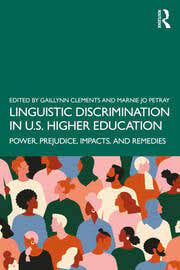
Linguistic Discrimination in US Higher Education: Power, Prejudice, Impacts, and Remedies
Edited by Gaillynn Clements and Marnie Jo Petray
https://doi.org/10.4324/9780367815103
This volume examines different forms of language and dialect discrimination on U.S. college campuses, where relevant protections in K-12 schools and the workplace are absent. Real-world case studies at intersections between class, race, gender, and ability explore pedagogical and social manifestations and long-term impacts of this prejudice between and among students, faculty, and administrators. With chapters by experts including Walt Wolfram and Christina Higgins, this book will be useful for students in courses in language variety and language and power; researchers in sociolinguistics, education, identity studies, and justice and equity studies; and diversity officers looking to understand and combat bias.
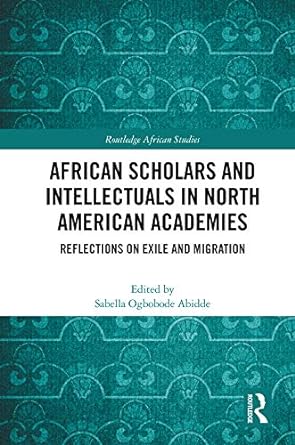
African Scholars and Intellectuals in North American Academies: Reflections on Exile and Migration
Edited by Sabella Ogbobode Abidde
Abingdon, Oxon ; New York, NY : Routledge, 2021. Book Online
This book examines the process and events surrounding the migration of African scholars, as well as their lives and lived experiences within and outside of their colleges and universities.
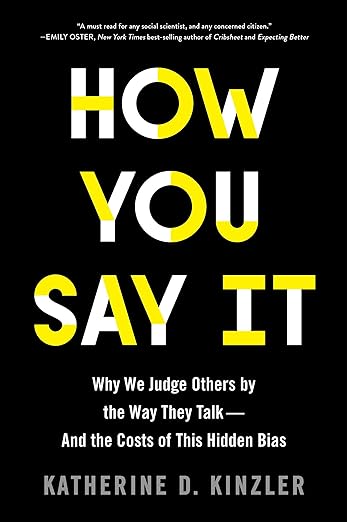
How You Say It : Why You Talk the Way You Do—and What It Says About You
Katherine D. Kinzler
Boston: Houghton Mifflin Harcourt, 2020. Book Online
We gravitate toward people like us—it’s human nature. Race, class, and gender shape our social identities, and thus who we perceive as “like us” or “not like us”. But one overlooked factor can be even more powerful— the way we speak. As the pioneering psychologist Katherine Kinzler reveals in How You Say It, the way we talk is central to our social identity, because our speech largely reflects the voices we heard as children. We can change how we speak to some extent, whether by “code-switching” between dialects or learning a new language—over time, your speech even changes to reflect your evolving social identity and aspirations. But for the most part, we are forever marked by our native tongue and are hardwired to prejudge others by theirs, often with serious consequences.
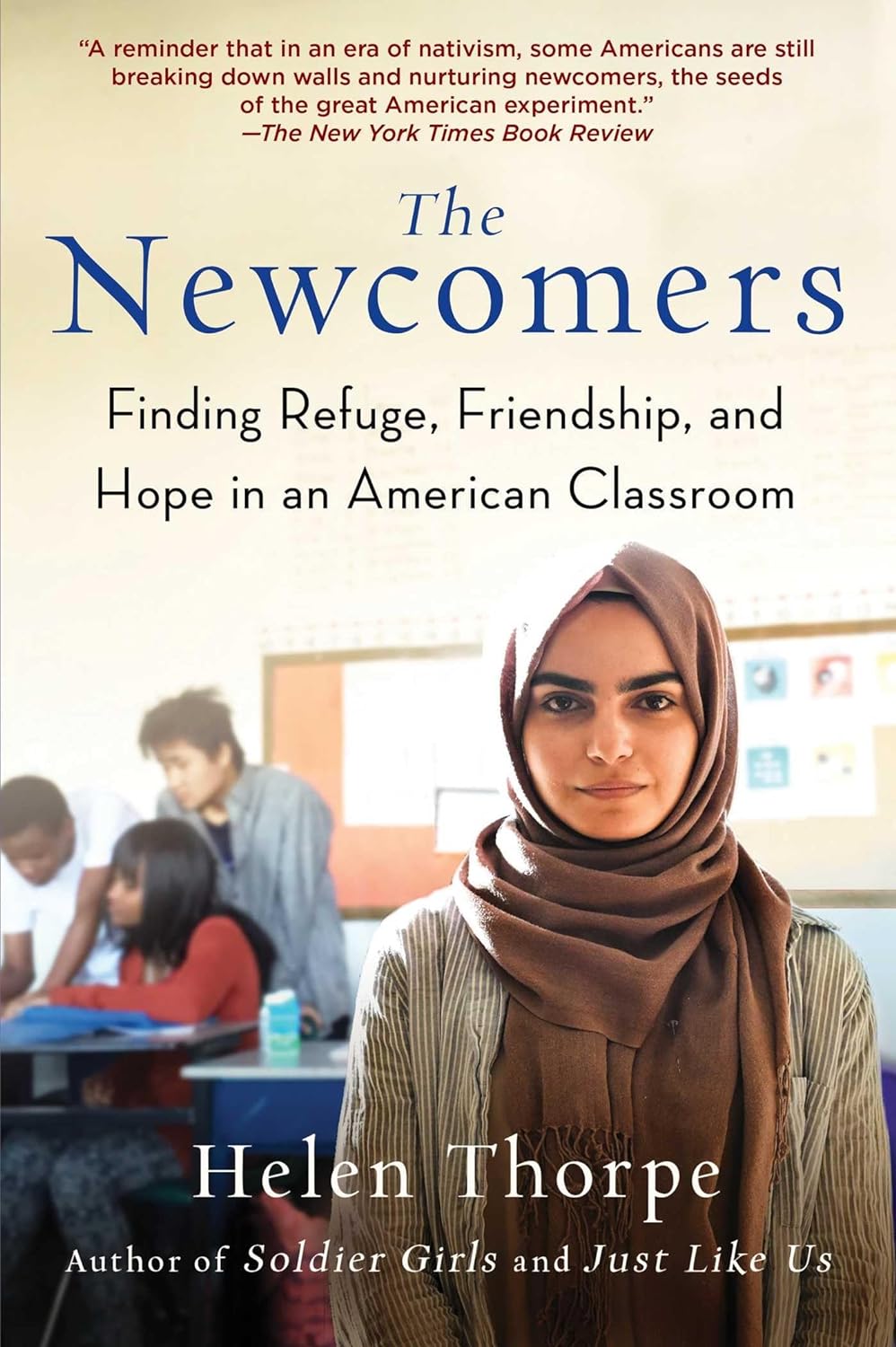
The Newcomers : Finding Refuge, Hope, and Friendship in America
Helen Thorpe
New York : Simon & Schuster, 2017. Book Online
The Newcomers follows the lives of twenty-two immigrant teenagers throughout the course of the 2015-2016 school year as they land at South High School in Denver, Colorado, in an English Language Acquisition class created specifically for them. Speaking no English, unfamiliar with American culture, their stories are poignant and remarkable as they face the enormous challenge of adapting. These newcomers, from fourteen to nineteen years old, come from nations convulsed by drought or famine or war. Many come directly from refugee camps, after experiencing dire forms of cataclysm. Some arrive alone, having left or lost every other member of their original family.
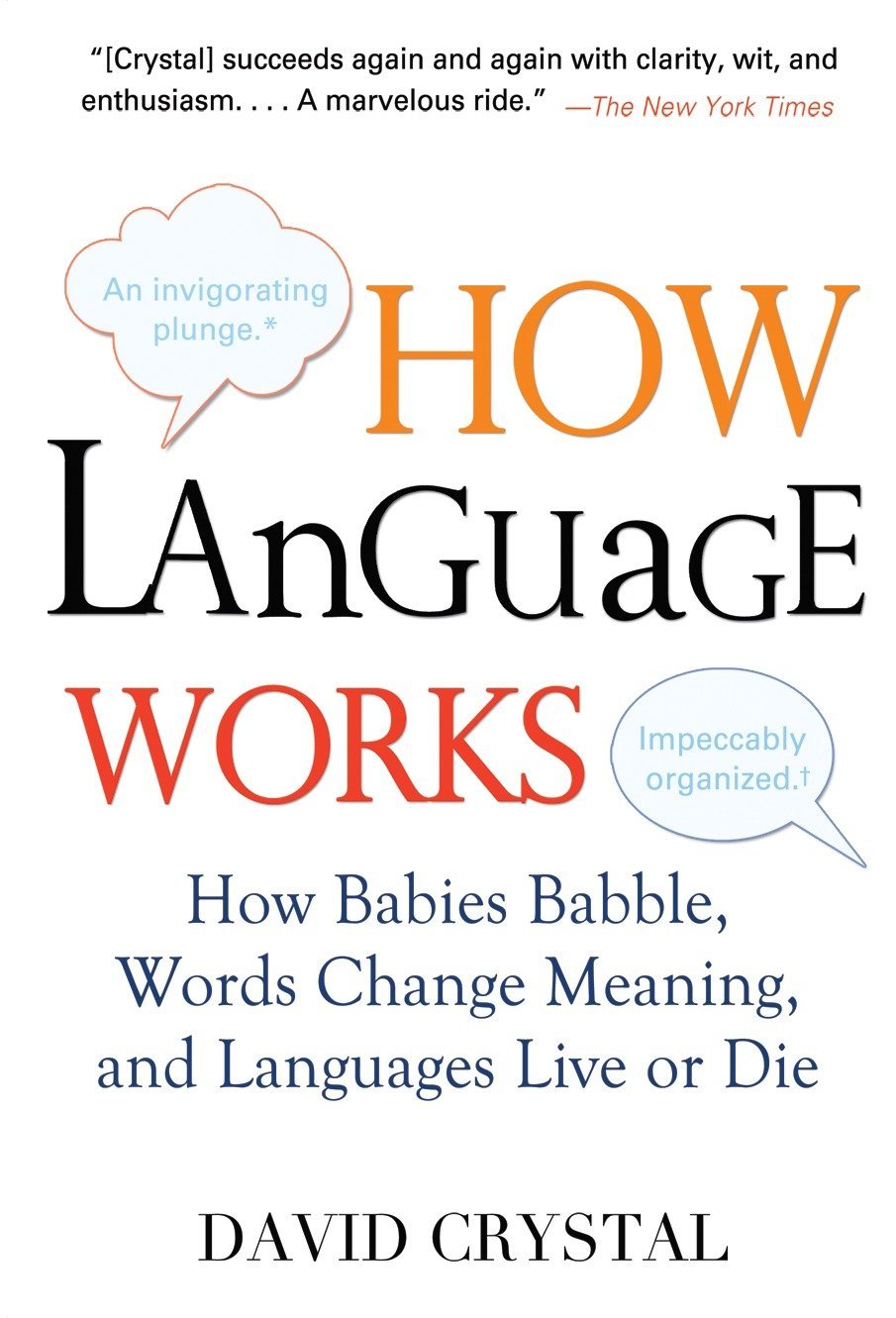
How Language Works : How Babies Babble, Words Change Meaning, and Languages Live or Die
David Crystal
New York : Avery, [2007], 2005. Book Online
In this fascinating survey of everything from how sounds become speech to how names work, David Crystal answers every question you might ever have had about the nuts and bolts of language in his usual highly illuminating way. Along the way, we find out about eyebrow flashes, whistling languages, how parents teach their children to speak, how politeness travels across languages and how the ways we talk show not just how old we are but where we're from and even who we want to be.
Articles
“Different When I Opened My Mouth: Experiences, Reflections, and Perspectives of Faculty Members with Foreign English Accents in Higher Education”
Duke University Press; October 2020
This article explores experiences, reflections, and perspectives of actual or perceived linguistic discrimination as experienced by four Latina/o and one white foreign-born professor currently working in research universities across the United States.
“Comprehensibility and Intelligibility of International Student Speech: Comparing Perceptions of University EAP Enstructors and Content Faculty”
Beth E. Sheppard, Nancy C. Elliott, and Melissa M. Baese-Berk
Journal of English for Academic Purposes; March 2017
Many international students at U.S. universities study in intensive English courses to improve their language skills before taking content-oriented courses toward their degrees. English for Academic Purposes (EAP) instructors in intensive courses and university faculty in content courses both listen to international student speech, but it is unclear whether they perceive it similarly or differently. This article seeks to strengthen our understanding of the relationship between comprehensibility and intelligibility and discuss implications for university EAP curricula.
“Addressing Linguistic Inequality in Higher Education: A Proactive Model”
Walt Wolfram
Language & Social Justice in the United States, Summer 2023
Although most institutions of higher education in the United States have now developed diversity, equity, and inclusion centers, programs, and initiatives, language equality tends to be excluded from the typical “canon of diversity.” Language remains an overlooked or dismissed issue in higher education, while it insidiously serves as an active agent for promoting inequality in campus life. To address this linguistic inequality, Wolfram describes a proactive “campus-infusion” program that includes activities and resources for student affairs, academic affairs, human resources, faculty affairs, and offices of institutional equity and diversity.
Hanne Kirstine Adriansen, Thilde Juul-Wiese, Lene Møller Madsen, Taina Saarinen, Vera Spangler, and Johanna L. Waters
Population, Space and Place; March 2023
The aim of this paper is to explore the role of English in the internationalization of higher education and to show how a spatial approach can illuminate what English means and how it is experienced in its multiple and shifting forms.

“Study: At 'Rate My Professors,' A Foreign Accent Can Hurt A Teacher's Score”
Kat Chow
NPR’s Code Switch, March 2015
This article discusses a recently published study in the journal Language in Society about student bias against teachers who are non-native English speakers.
Podcasts
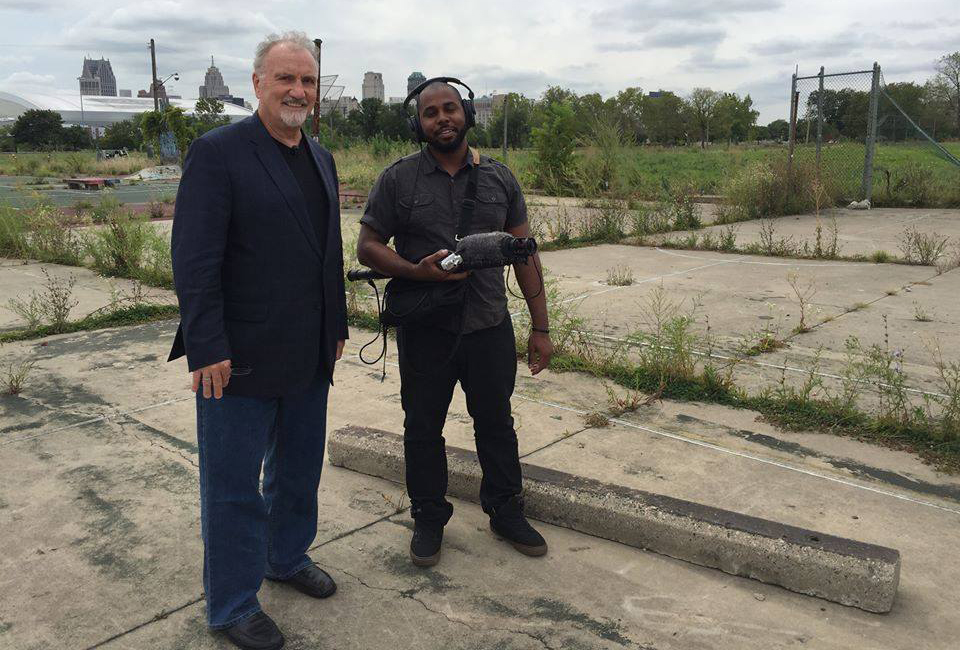
LingLab is the brainchild of graduate students in the Sociolinguistics program at NC State University. We don’t think about it much sometimes, but language touches every single thing we do as human beings. In our linguistics lab at NC State, we have linguists who study bilingualism in Korean hip hop music, text message lingo, the use of Caribbean dialects in literature (just to name a few!) Every day our lab is full of interesting conversations about the nature of language and the different ways it takes on a life of its own in the world, and the many different approaches we take to analyzing it. This podcast is our way of bringing you into the conversation.

From Upspeak To Vocal Fry: Are We 'Policing' Young Women's Voices?
Fresh Air, July 23, 2015
Women get policed more often for "vocal fry" and "upspeak" than their male counterparts. Terry Gross interviews three guests. Journalist Jessica Grose is a former senior editor at Slate magazine who also hosted Slate's podcast DoubleX Gabfest. She's now the editor of “Lenny,” which is a forthcoming email newsletter about women's issues, politics and culture from Lena Dunham and Jenni Konner. They're producers of HBO's "Girls." Dr. Penny Eckert is a professor of linguistics at Stanford University and is co-author of the book Language And Gender. Susan Sankin is a speech and language pathologist who works with non-native speakers and people in a variety of different professions, including actors. Her clients include people who think their speech is interfering with their ability to advance in their careers.
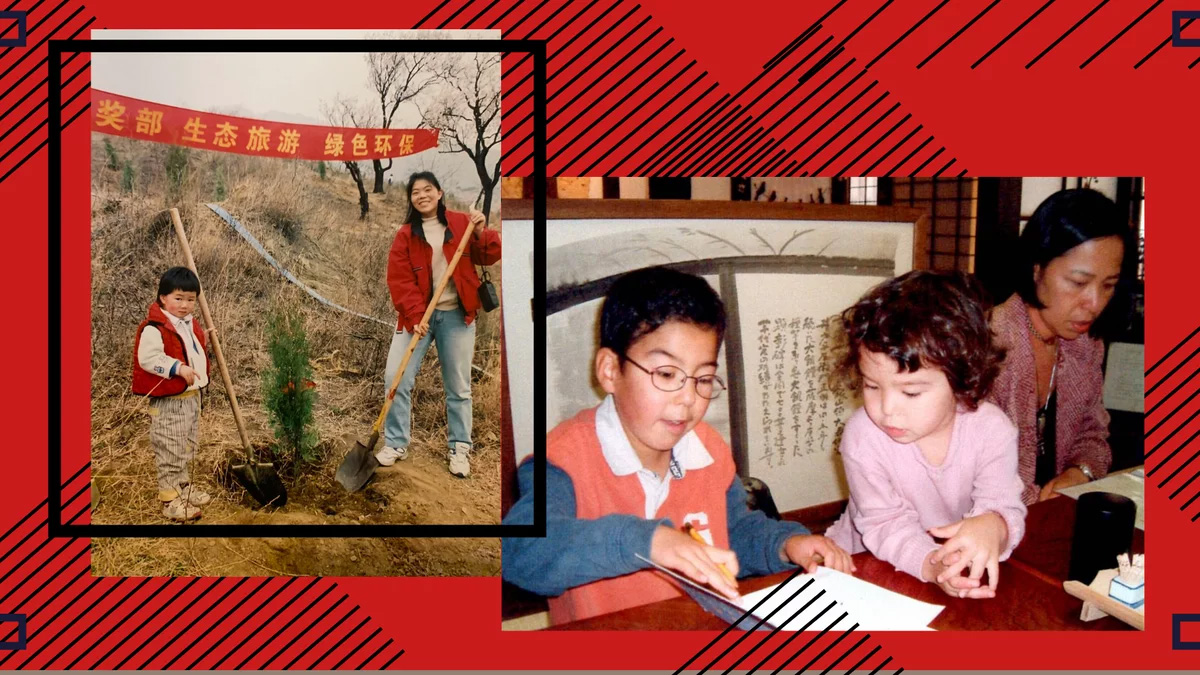
Code Switch: Lost in Translation
This show brings you the stories of two families grappling with how to communicate across languages. In the first story, a young man sorts through how to talk to his parents about gender in Chinese, where the words for "he" and "she" sound exactly the same. Then, a family who was advised to stop speaking their heritage language, Japanese, based on some unsound advice and outdated research. These stories were reported by Elena Neale-Sacks and Isabella Bloom. Both are journalists and recent graduates of UC Berkeley's Graduate School of Journalism.
Videos
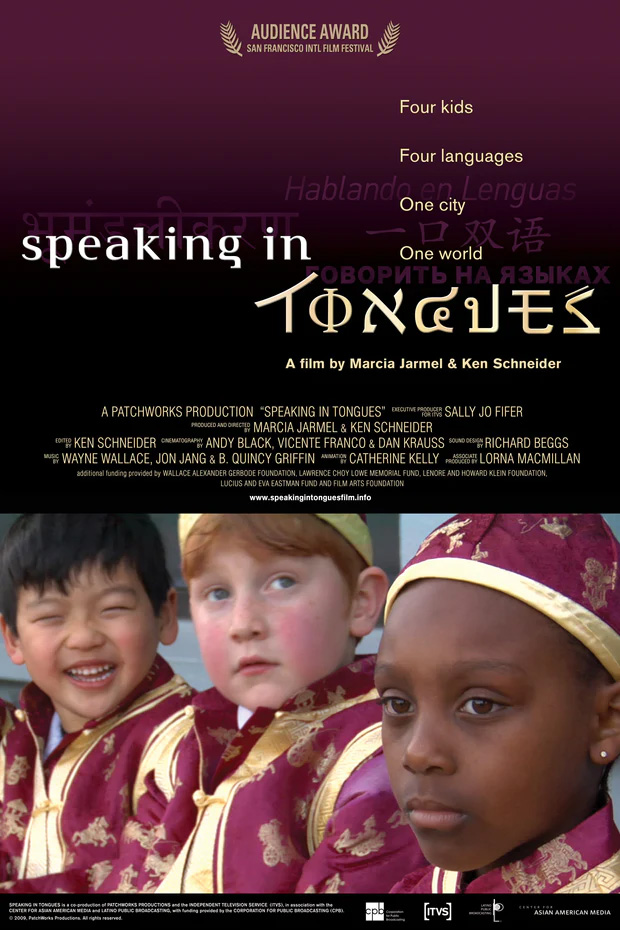
Speaking in Tongues
Patchworks Films, [2009] Video Online
https://catalog.lib.ncsu.edu/catalog/NCSU4874653
At a time when 31 states have passed “English only” laws, four pioneering families put their children in public schools where, from the first day of kindergarten, their teachers speak mostly in a foreign language. Speaking in Tongues follows four diverse kids on a journey to become bilingual. This charming story will challenge you to rethink the skills that Americans need to succeed in the twenty-first century.

The Language & Life Project @TheLanguageLifeProject
https://www.youtube.com/user/NCLLP
The Language and Life Project at NC State produces documentaries and educational media about language and identity. This YouTube channel features about 100 vignettes on dialect and language diversity, including streaming all of the documentaries produced by the Language and Life Project. More than 22 million views and 84 thousand members. For more information, go to www.languageandlife.org
The Language and Life project sends out a regular newsletter about activities and information about dialects. Sign up at https://languageandlife.org/newsletter-sign-up/.
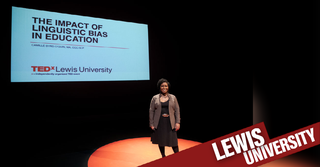
The Impact of Linguistic Bias in Education
Camille Byrd O’Quin, TEDxLewisUniversity
https://www.youtube.com/watch?v=QrTFJ5NlM1g
It is time we talked about linguistic bias and the impact it has on student education. In order to combat our prejudices when it comes to how students speak and write, we must first recognize what our prejudices are. This talk explores educational equity for students who speak African American Vernacular English. Camille Byrd O’Quin is Assistant Professor and Coordinator of Clinical Education of the Master of Science in Speech-Language Pathology program at Lewis University in Romeoville, Illinois.
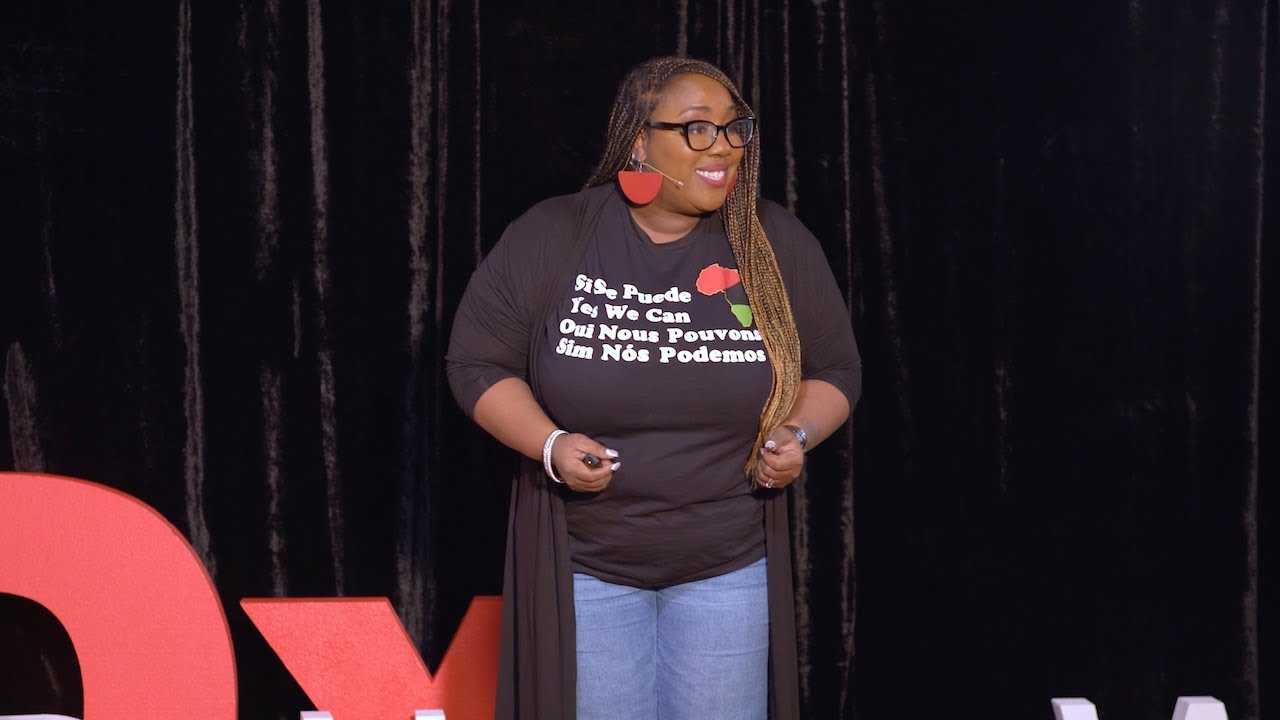
Why We Ain’t Gonna Get Free in One Language
Jamila Craig, TEDxDelthorneWomen
https://www.youtube.com/watch?v=fPQ5Ma7riAk
Linguist Jamila Craig shares her compelling story of interpreting into Spanish during a tour of Goree Island in Senegal and describes how the concept of language justice can be a core strategy for our freedom fighting. Jamila Craig, Esq. is a linguist and social impact entrepreneur specializing in Black-centric language coaching and multilingual community building across the African Diaspora.
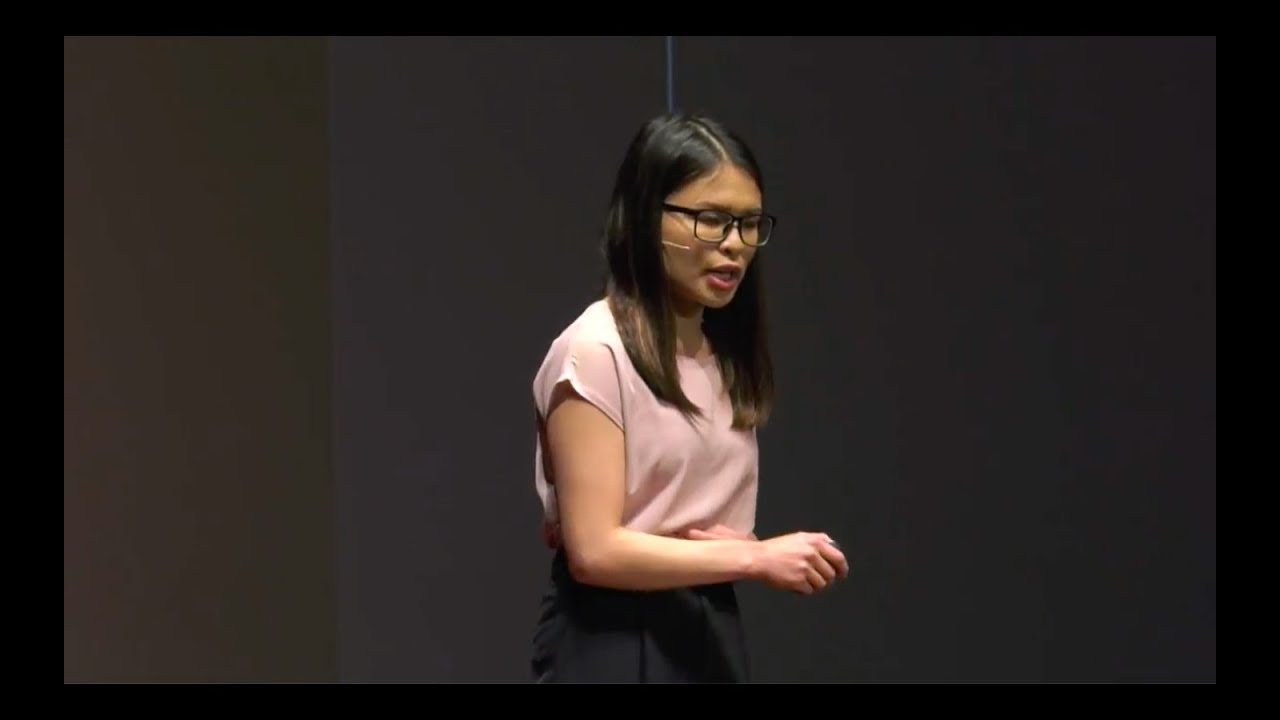
Embracing Multilingualism and Eradicating Linguistic Bias
Karen Leung, TEDxWWU
https://www.youtube.com/watch?v=S8QrGsxeEq8
Growing up as a native Cantonese speaker, Karen took ESL classes in school, all the while interpreting for her parents during teacher conferences at just seven years old. Through this experience, she realized that there is a need for increased awareness of the linguistic biases in our society and the need for more resources for immigrant families who are working in tandem with schools to provide the best possible education for their children. Leung also sees the potential of linguistic diversity in education, and believes that it is crucial for multicultural education.
LinkedIn Learning
Through free access to the NC State community, LinkedIn Learning offers the following module on this topic:
Supporting Non-Native English Speakers at Work https://www.linkedin.com/learning-login/share?account=53565897&forceAccount=false&redirect=https%3A%2F%2Fwww.linkedin.com%2Flearning%2Fsupporting-non-native-english-speakers-at-work%3Ftrk%3Dshare_ent_url%26shareId%3DqjowN7F9T3%252Bjj3TFNf%252FqFw%253D%253D